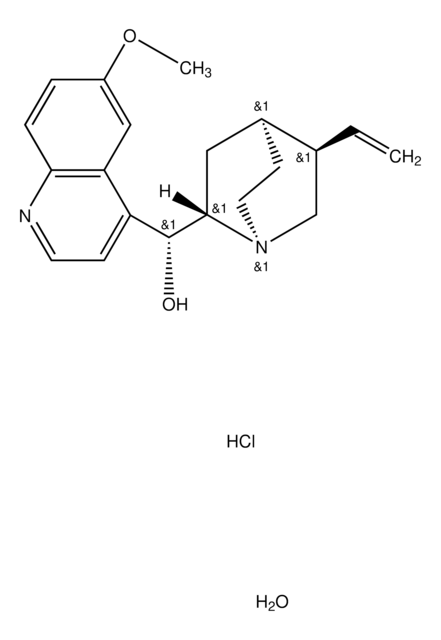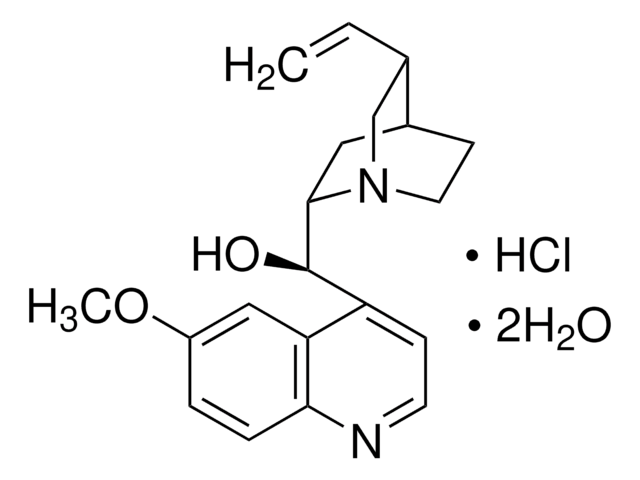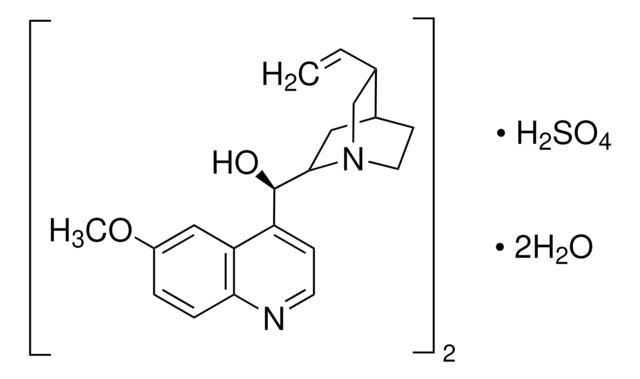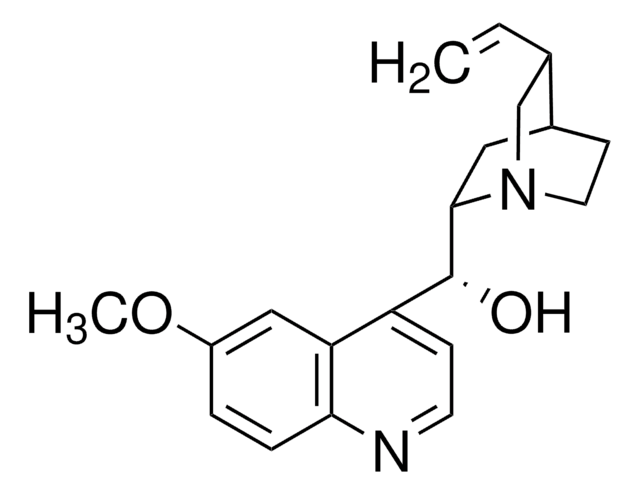22632
Quinine hydrochloride dihydrate
tested according to Ph. Eur.
Synonym(s):
Chinini hydrochloridum, (8α, 9R)-6′-Methoxycinchonan-9-ol monohydrochloride dihydrate
About This Item
Recommended Products
Agency
USP/NF
tested according to Ph. Eur.
Quality Level
form
solid
solubility
water: soluble 0.25 mg in 5 ml
application(s)
pharmaceutical (small molecule)
SMILES string
O.O.Cl.COc1ccc2nccc([C@@H](O)[C@@H]3C[C@@H]4CCN3C[C@@H]4C=C)c2c1
InChI
1S/C20H24N2O2.ClH.2H2O/c1-3-13-12-22-9-7-14(13)10-19(22)20(23)16-6-8-21-18-5-4-15(24-2)11-17(16)18;;;/h3-6,8,11,13-14,19-20,23H,1,7,9-10,12H2,2H3;1H;2*1H2/t13-,14-,19-,20+;;;/m0.../s1
InChI key
MPQKYZPYCSTMEI-FLZPLBAKSA-N
Looking for similar products? Visit Product Comparison Guide
Application
Biochem/physiol Actions
Signal Word
Danger
Hazard Statements
Precautionary Statements
Hazard Classifications
Acute Tox. 4 Oral - Resp. Sens. 1 - Skin Sens. 1
Storage Class Code
11 - Combustible Solids
WGK
WGK 1
Flash Point(F)
Not applicable
Flash Point(C)
Not applicable
Personal Protective Equipment
Regulatory Listings
Regulatory Listings are mainly provided for chemical products. Only limited information can be provided here for non-chemical products. No entry means none of the components are listed. It is the user’s obligation to ensure the safe and legal use of the product.
JAN Code
22632-50G-F:
22632-VAR-F:
22632-BULK-F:
Choose from one of the most recent versions:
Already Own This Product?
Find documentation for the products that you have recently purchased in the Document Library.
Customers Also Viewed
Our team of scientists has experience in all areas of research including Life Science, Material Science, Chemical Synthesis, Chromatography, Analytical and many others.
Contact Technical Service





